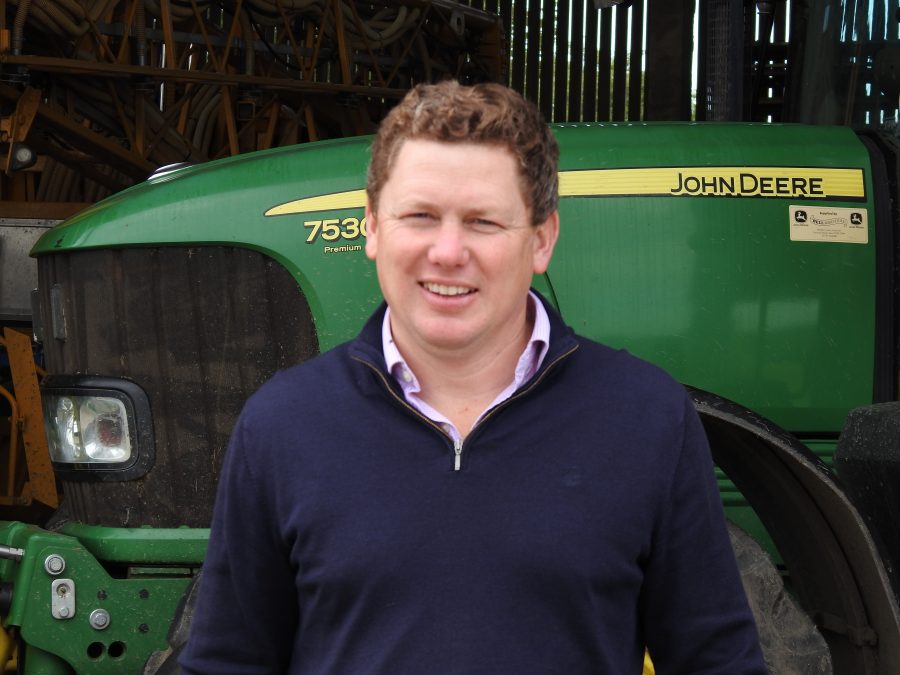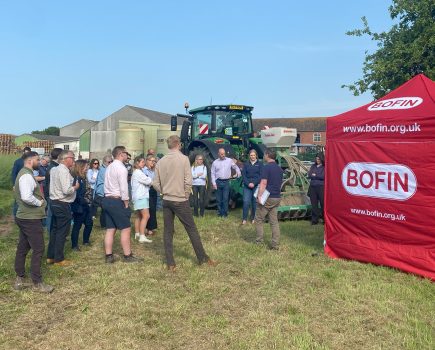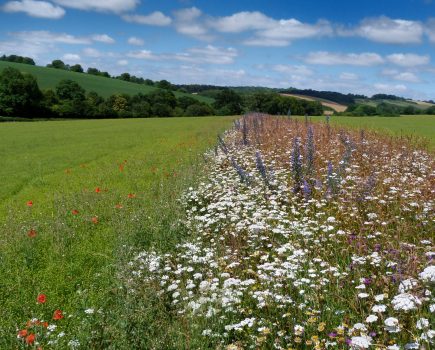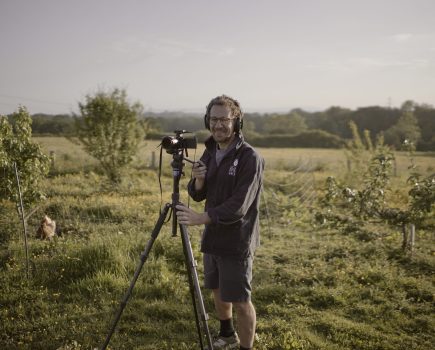A call for “long term clarity” to allow rural businesses to “plan, invest, and build resilience” followed news of the Government’s spending review cash allocation for DEFRA.
In a mixed bag of responses to the spending announcement, most of them cautiously optimistic, the call for more clarity came from Jason Beedell, rural research director at Strutt & Parker.
Pointing out that it was “hard to decipher the exact implications of the spending review for DEFRA,” he observed: “The Government says it will invest more than £2.7 billion per year in sustainable farming and nature recovery from 2026/27 until 2028/29. Of this, £2.3 billion will be funnelled through the farming and countryside programme, which includes the Environmental Land Management schemes (ELMS).
“But given the National Audit Office reported in June 2024 that DEFRA had committed to spend £2.4 billion a year on the farming sector between 2020/21 and 2023/24, that appears to be a cut of around 4%.
“While the Government also states that farmers will get up to £400m from additional nature schemes, what they are is not specified. It feels like we need more detail.
“Farmers will need to wait for clarity on how individual schemes like the Sustainable Farming Incentive may be impacted, although DEFRA has already signalled that the reset scheme is likely to target smaller farms.”
He went on: “It is interesting to note the Government’s ambition to drive efficiencies by introducing a common grants platform – and possibly a single grants delivery body – to handle grants and payment administration.
“A single platform makes sense in principle to streamline delivery and reduce duplication. However, experience shows that the roll-out of new digital systems can bring short-term challenges, and it will be important that any transition is carefully managed to minimise disruption for farmers.
“Farmers are operating in a radically different policy environment to five years ago. Long-term clarity is what businesses now need to plan, invest, and build resilience.”
The NFU also “cautiously welcomed” the announcement of an overall settlement of £7.4 billion for farming’s sponsor department, DEFRA, in line with previous budgets.
It pointed out that within the £2.7 billion for farming and nature recovery, there was a planned £100 million cut to farming and countryside programmes and warned: “This comes after the agriculture budget has already been eroded over the past decade by inflation.”
NFU President Tom Bradshaw said: “While the DEFRA Secretary of State has listened and managed to maintain the overall funding for farming and nature recovery, from what we can see so far, the £100 million cut to farming means farmers and growers will need to do more with less.”
He suggested that while the Chancellor had said the Government “cares about where things are made and who makes them”, the confidence of British farmers and growers had been “battered by constantly moving policy goalposts, global volatility and unpredictable climate events”.
NFU Regional Board chair for the East of England Alan Clifton-Holt, who farms near Romney Marsh in Kent, said: “The NFU has consistently lobbied for the agriculture budget to be protected, so news that the overall funding for farming and nature recovery has been maintained will be welcomed by farmers and growers in the South East.”
But he added: “The fact that the Government has still not made any announcements on reconsidering its family farm tax policy is very concerning. This poorly thought out and damaging policy threatens the future of small and medium-sized family farms and could have a devastating impact on our industry.”
The Country Land and Business Association (CLA) also welcomed the announcement, with President Victoria Vyvyan calling it “a meaningful funding settlement” that would see many farmers “breathing a sigh of relief”.
She added: “We now need DEFRA to work closely with industry to understand how to get the best bang for their buck – to further the impressive gains we have already made in nature-friendly farming. Trust and confidence have been shaken, and this is an opportunity to rebuild.
“It is clear, though, that government still has not fully understood the consequences of its anti-business policies. Taxes are going up, jobs are being lost and investment in the rural economy is crumbling. Now is the time to get around the table with rural business leaders and thrash out a robust and ambitious plan for growth.”
CPRE Chief Executive Roger Mortlock welcomed more cash for affordable housing, which he said “could make a real difference if it’s directed towards the escalating rural housing crisis”.
But he added: “The way ‘affordable’ housing is defined, as 80% of market value, keeps many new homes out of reach for ordinary people, especially in the countryside.
“CPRE is calling on the Government to redefine ‘affordable’ housing in line with average local incomes.”
Will White, Sustainable Farming Coordinator at Sustain, described the settlement as “a much-needed show of commitment for nature-friendly farming”, adding: “The funding commitment for ELMS is a vital signal that the Government recognises the central role of farmers in delivering climate action, restoring nature and ensuring food security.
“To make this investment deliver, DEFRA must ensure it translates into measurable outcomes and reaches farmers fairly, efficiently, and accessibly. Too many farmers face barriers to support, so additional investment in trusted, independent advice on the ground is critical.
“But funding alone won’t deliver the farming transition we need. Farmers also require stronger supply chain regulation to secure a fairer share of profits, enabling them to invest in more nature-friendly practices. A clear strategy is also needed to grow overlooked sectors like horticulture, which are vital to public health and food security.”
Soil Association Director of Policy Brendan Costelloe pointed out that while the farming and nature settlement “will have been hard won by DEFRA ministers”, it still amounted to a real term cut of 2.7% a year. “Given the scale of the challenge, it’s more critical than ever that spending is targeted at those areas that do most to deliver transformational change,” he stressed.
He called on the Government “to treat food system transformation as seriously as it treats the green energy transition”, which he said would mean “continued support in SFI for regenerating soils, the ‘renewable energy’ of the food system”.
He went on: “Building soil fertility allows farmers to reduce their dependency on harmful chemicals, and it lays the foundations for a widespread transition to nature-friendly farming. Increased investment in agroforestry can also play a critical role in building farm resilience and national food security, by helping to protect farms from the increasing impacts of climate change.”
The Nature Friendly Farming Network (NFFN) noted the small cut announced to the DEFRA budget with “cautious optimism”, describing it as “a vote of confidence in nature-friendly farming during tough economic times”.
It added, though, that current levels of funding “still fall short of what’s needed to meet the UK’s legally binding climate and nature targets” and said future spending increases must be part of any serious strategy for land use, food security and farm resilience.
CEO Martin Lines said: “Given the challenging economic climate, it’s a relief that the budget for nature-friendly farming has been largely protected. Ministers have listened to our calls to recognise the value of nature-friendly farming and what it can do.
“However, the challenges facing food production, biodiversity and climate resilience demand far greater ambition. Without increased investment, we risk falling short of our national commitments and letting down the very farmers ready to lead the transition.
“Investing in nature-friendly farming isn’t a luxury – it’s essential to future-proof British farming, protect our communities and secure our food production. This investment benefits everyone, whether protecting communities from devastating flooding, supporting affordable renewable energy or ensuring high-quality food is available on supermarket shelves.”
Pictured: Alan Clifton-Holt
For more like this, sign up for the FREE South East Farmer e-newsletter here and receive all the latest farming news, reviews and insight straight to your inbox.







